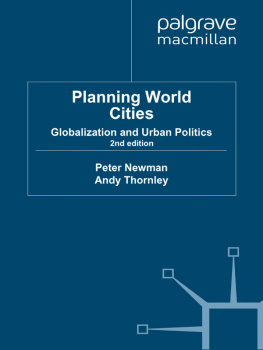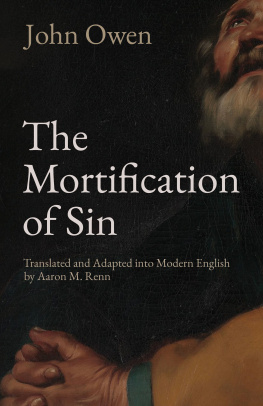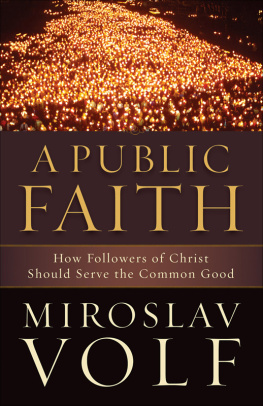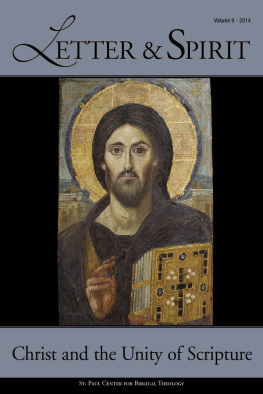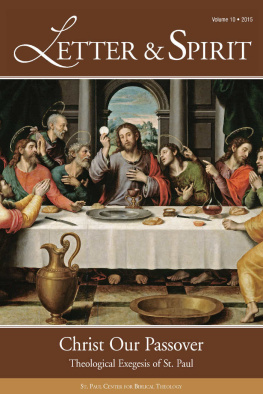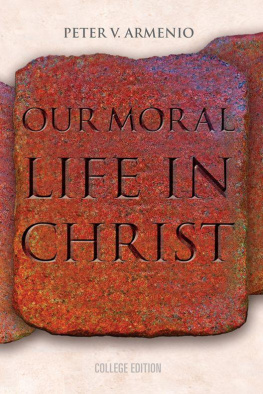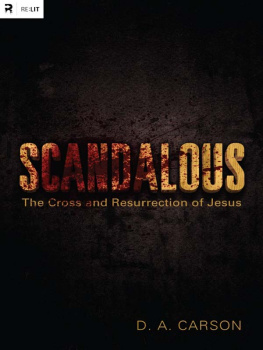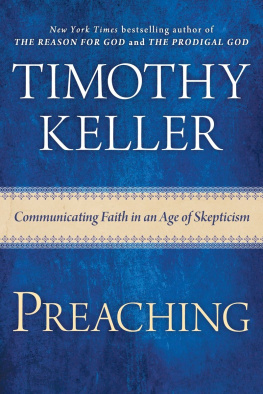Freed from the Law
to Serve God in the Spirit
by Peter M Newman
But now we have been released from the Law,
having died to that which once bound us, so
that we serve God in the newness of Spirit,
and not in the oldness of the letter of the Law.
Romans 7:6
While every precaution has been taken in the preparation of this book, the publisher assumes no responsibility for errors or omissions, or for damages resulting from the use of the information contained herein.
FREED FROM THE LAW TO SERVE GOD IN THE SPIRIT
First edition. February 13, 2017.
Copyright 2017 Peter M Newman.
ISBN: 978-1386808121
Written by Peter M Newman.
10 9 8 7 6 5 4 3 2 1
Chapter Seven of the Book of Romans may be the most misunderstood chapter in the entire New Testament with the gravest consequences to the Christian faith. Many Christians mistakenly think Romans Chapter Seven highlights the conflict of two opposing spiritual natures (the old sinful nature and the new Christ-like nature), which they believe co-exist within every Christian. However, this is not Biblically correct. In Romans Chapter Six, the apostle Paul taught that God had crucified our sinful nature with Christ and removed it from us when we were saved (Romans 6:6; see also Colossians 2:11). Therefore, if you are born of the Spirit, you now have only one spiritual nature Christs holy nature, dwelling in you. The reason why you keep sinning is not because you still have a sinful Adam nature; it is because your old Adam way of thinking still needs to be renewed and your soul transformed by the truth of what Jesus Christ accomplished for you on the cross. The normal Christian experience should be that you sin less and less as you apply this essential Biblical truth to your life more and more. Gods purpose and provision through Christs death on the cross is that sin would no longer have dominion over you (Romans 6:7, 12, 14). However, many Christians do not know (and believe and act on) the truth that they have died with Christ and that their old sinful nature is dead and gone; therefore, they are overcome by besetting sins and still personally identify with the experience of the wretched man in Romans Chapter Seven. Since they are continually defeated by sin, they mistakenly and tragically conclude that they still have a sinful nature. However, the truth is that God never intended for His people to be overcome by sin; that is why He removed our sinful nature when we were saved.

I n Romans Chapter Seven , Paul uses the first person to emphasize the anguish and futility of trying to keep Gods Law before you were born again and you still had a sinful nature that was hostile toward God. When reading Romans Chapter Seven, it is important to remember that Paul wrote the Epistle to the Romans in the Greek language, a precise and expressive language which often strategically uses the present tense to dramatically describe a past action and experience. In Chapter Seven, Paul made effective use of this historical present tense, as it is called in the Greek language, to vividly describe the misery and hopelessness of a person who wants to serve God but finds himself continually frustrated and sabotaged by his rebellious sinful nature because he is not born again. In writing this chapter, Paul drew from his own past personal experience as a devout Pharisee before He became a born again Christian, and dramatically used the Greek literary technique of using the present tense to describe the plight of an unregenerate person who tries to obey the moral Law of God. Another example of this literary technique (using the present tense to dramatize an event) occurs in Matthew 7:22-23, when Jesus declared, On that day many will say to me, Lord, Lord, did we not prophesy in your name, and cast out demons in your name, and do many mighty works in your name? And then will I declare to them, I never knew you; depart from me, you workers of lawlessness. Notice that in telling this narrative, Jesus speaks in the present tense as if this future event were presently occurring.

W e should also point out that if a person is born again but mistakenly believes he still has a sinful nature, then he will also subconsciously (if not consciously) think that he is still captive to the all-consuming power of sin, and inwardly resign himself to being a helpless and hopeless chronic sinner. This total defeat and surrender to the captivity of sin most certainly is not the normal Christian life that Christ died on the cross to grant us. The Bible clearly says that sinners (not believers) are helpless and hopeless because they are without God (Romans 5:8; Ephesians 2:12). This kind of despair and misery (as depicted in Romans Seven), results from being chronically enslaved to sin, and reflects an attitude of unbelief and disobedience to the truth of Gods Word. Some Christians refer to Romans 7:17 (sin... dwells in me) to support their mistaken belief that the evil presence and power of sin still resides in a Christians physical body. However as we said earlier, Paul was describing a person here who is not born again, yet wants to obey God but cannot do so because of his sinful nature, and so he finds himself practicing evil (Romans 7:17-21). Also we must ask: where does this spiritually cancerous sin dwell in your physical body after you are born again? Is it in your hands and feet? Jesus said, If your hand or foot causes you to sin, cut it off and throw it away from you; it is better for you to enter life crippled or lame, than to have two hands or two feet and be cast into the eternal fire (Matthew 18:8). However, Jesus did not mean that sin resides in your physical body like a malignant tumor and you must now amputate your hands and feet to become freed from sin. Jesus meant we must decisively stop (cut off) practicing sin if we want to be His disciples and enter the kingdom of heaven. Thus, in Romans 7:5 and 7:6, Paul contrasts the spiritual condition of a Jewish unbeliever (whose righteousness depends on keeping Gods Law, but is always subverted by his sinful nature because he is not born again), with the spiritual condition of a born again believer (who no longer has a sinful nature and whose righteousness now depends on living by faith in Jesus Christ who indwells him, instead of by keeping the Law). Note that the Holy Spirit is never mentioned in the life of the person that Paul describes in Romans 7:1425, which indicates that person does not have the Holy Spirit in their life. Instead, we see that four times in Romans Seven (verses 5, 14, 18 & 25), the person whom Paul describes is in the flesh, that is, someone who is still in the old Adam nature, and not born again of the Spirit. In contrast, Paul refers to the Holy Spirit eleven times in Romans 8:1-4; 917. This highlights that the person described in Romans 8:1-4; 9-17 has the Holy Spirit. Paul even declares that the essence of what it means to be a Christian is to be indwelt with the Holy Spirit, and to not have an indwelling sinful nature (Romans 8:9). Therefore, Romans 7:5 sums up the unbelievers life, which Paul then describes in Romans 7:14-24; whereas Romans 7:6 sums up the believers life, which Paul then describes in Romans 8:1-4; 9-17. Remember there were no chapter breaks in Pauls original letter to the Romans. Furthermore, the early church did not believe that Romans Seven portrayed the normal Christian life. For the first three centuries of church history, the Christian church was of one accord in considering that Romans 7:14-24 described an unbeliever who had not yet become a Christian and, therefore, was incapable of overcoming sin because of his sinful nature (even though he was religious). The current prevailing and erroneous church interpretation that this passage in Romans Chapter Seven describes the normal life of a born again Christian who is enslaved to sin (because he still has a sinful nature) only emerged in theological discussions in the fourth century; was doctrinally embraced soon after by the Catholic church in the Middle Ages; and was later adopted and further promoted by the Protestant church. Is it any surprise that a defeated church, which is chronically overcome by sin, would misinterpret Romans Seven to wrongly conclude that born again Christians still have a sinful nature that enslaves them to sin?
Next page

